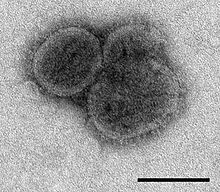
Researchers at the Washington University School of Medicine in St. Louis recently discovered that an experimental flu drug known as favipiravir cures mice infected with the potentially lethal Bourbon virus.
At least, that’s the case with mice. The drug has been previously approved in Japan but has yet to be approved in the United States for Bourbon virus treatments or its more common cousin, influenza. Researchers have turned to favipiravir for its success in inhibiting a key protein the virus requires for multiplication — a factor other influenza drugs lack.
“Without the flu drug, 100 percent of the infected mice died, and with the treatment, 100 percent survived,” Jacco Boon, an assistant professor of medicine and the paper’s senior author, said. “Up until now, doctors have not had any way to treat Bourbon virus. We’ve found something that works, at least in mice, and it suggests that antivirals for flu are a good place to start looking for a treatment for Bourbon.”
To date, the Bourbon virus has been reported in cases in Kansas, Missouri, and Oklahoma since it was first identified in 2014. Two of those afflicted have died. This rarity, however, also means it cannot be studied in human cases. It is tick-borne and, much like flu, includes symptoms such as fever, fatigue, and body aches.
Placebos utilized in mice only led to their deaths, whereas the actual drug use led to the survival of all afflicted mice. Unfortunately, as favipiravir is not currently approved by the U.S. Food and Drug Administration, its success may mean little for human patients — doctors in the United States may not even be able to obtain it for their patients.
“We really don’t have any way of telling how common Bourbon virus infection is or how deadly it is,” Boon said. “Ticks have always been here, and now we know that Bourbon virus is in ticks in this area. There have probably always been people getting infected with Bourbon virus, and we just did not know what it was before.”
The study’s findings were published in the journal PLOS Pathogens.




